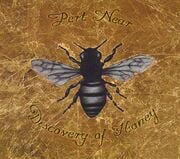New York, NY (Top40 Charts / Farm Aid) Recognizing that severe economic conditions threaten commodity farmers across the country, Farm Aid 2016, which took place today at Jiffy Lube Live in Bristow, emphasized how collaboration and innovative problem-solving can strengthen food systems and family farmer livelihoods.
The annual music and food festival celebrating family farmers brought 20,000 fans together just outside the nation's capital to celebrate ground-breaking, cooperative approaches to overcoming barriers to a family farm system of agriculture. At the same time, as dairy farmers and other commodity producers struggle with the consequences of record low prices, Farm Aid says family farmers need a broad coalition of partners to stand with them and collaborate to surmount the many obstacles that are forcing them off the land.
"The first Farm Aid sparked a 31-year effort to put power back into the hands of family farmers and all of us who eat," said Willie Nelson, president and founder of Farm Aid. "We've made a lot of progress, but it's clear we aren't done yet. Family farmers still aren't getting a fair shake. We need to keep coming together to help each other and find solutions."
Farm Aid's day-long festival kicked off with local Virginia and Washington, D.C., farmers joining Farm Aid board members Nelson, John Mellencamp,
Neil Young and
Dave Matthews in a conversation from the Farm Aid stage about community partnerships that are changing the food landscape. The partnerships go beyond farmers' markets and local restaurants, crossing sectors, towns and generations. Speakers discussed collaborations that include growing new food economies in Appalachia with food hubs; addressing diet-related diseases with good food solutions like
Fresh Farmacy; and revitalizing disadvantaged urban neighborhoods through community gardens. First Lady of Virginia
Dorothy McAuliffe and Deb Eschmeyer, the White House's executive director of Let's Move!, joined everyone on stage to talk about the power of each of us to grow a strong, healthy farm and food system.
"We see invigorated local economies and stronger communities when family farmers thrive," said Farm Aid executive director Carolyn Mugar. "Together, farmers and eaters have the power to bring equity and fairness to our farm and food system, to protect our soil and water, and to make sure that everyone has access to fresh, healthy foods."
Farm Aid 2016 featured performances by Nelson, Mellencamp, Young and Matthews — who performed with Tim Reynolds — as well as
Alabama Shakes, Sturgill Simpson,
Nathaniel Rateliff & The Night Sweats,
Jamey Johnson with special guest appearance by Alison Krauss, Margo Price,
Lukas Nelson & Promise of the Real, Insects vs Robots, Ian Mellencamp and Star Swain.
Concertgoers found inspiration in Farm Aid's HOMEGROWN Village, which featured hands-on activities that gave festivalgoers a chance to dig in and learn about the ways family farmers are enriching our soil, protecting our water and growing our economy, in addition to bringing us good food for good health. In the HOMEGROWN Skills Tent, attendees had the opportunity to engage with food, farming and crafting. Some of the workshops included transforming hemp into paper, seed saving and composting.
The concert was broadcast live at farmaid.org and on SiriusXM channel, Willie's Roadhouse (59).
Sponsors of Farm Aid 2016 include Bonterra Organic Vineyards, Prairie Organic, Horizon Organic, HimalaSalt, Lagunitas Brewing Co., Applegate Farms, and Organic Valley. Media partners include The Washington Post, which hosted the FarmYard Stage, iHeartMedia and On Tap Magazine.
Farm Aid's mission is to build a vibrant, family farm-centered system of agriculture in America. Farm Aid artists and board members Willie Nelson, Neil Young,
John Mellencamp and
Dave Matthews host an annual concert to raise funds to support Farm Aid's work with family farmers and to inspire people to choose family farm food. Since 1985, Farm Aid, with the support of the artists who contribute their performances each year, has raised more than $50 million to help farmers thrive, expand the reach of the Good Food Movement, take action to change the dominant system of industrial agriculture and promote food from family farms.
























